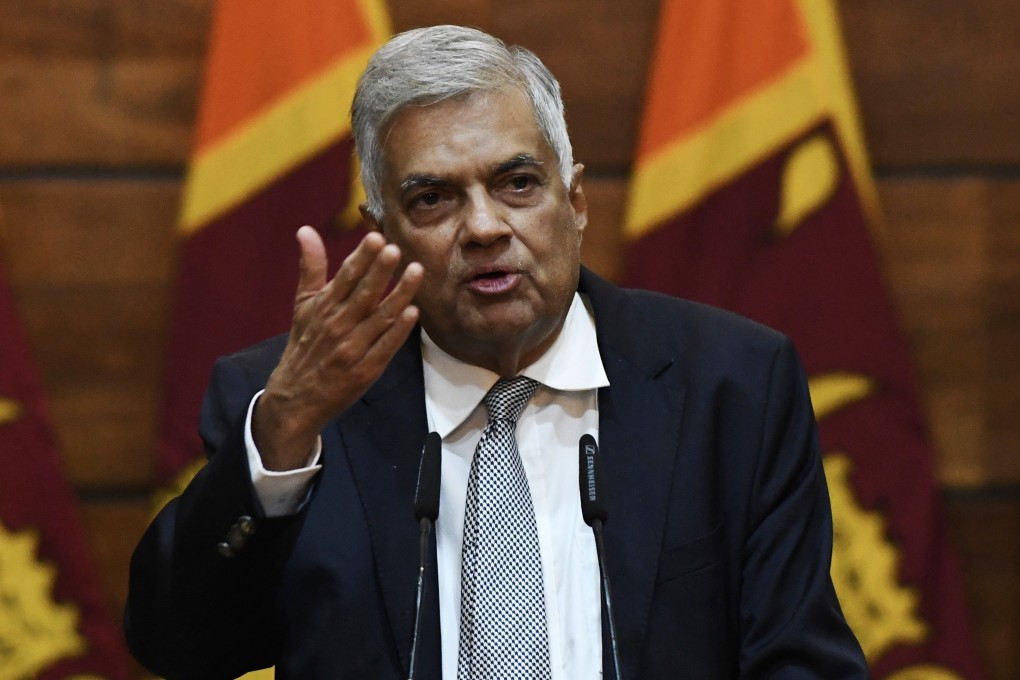Sri Lanka did not arrest citizens who joined Islamic State because it is ‘not an offence’ to join foreign terrorist groups, PM says
- Attacks on Easter Sunday killed 253 people – revised down from more than 350. Islamic State has claimed responsibility
- Many countries amended their relevant anti-terrorism legislation after 2014, the year that Islamic State declared a caliphate

Sri Lankan Prime Minister Ranil Wickremesinghe told Sky News on Thursday that the Sri Lankan government had known Sri Lankan nationals who had joined Islamic State (IS) had returned to the country – but that they could not be arrested, since joining a foreign terrorist organisation is not against the law.
“We knew they went to Syria … But [in] our country, to go abroad and return or to take part in a foreign armed uprising is not an offence here,” Wickremesinghe said. “We have no laws which enable us to take into custody people who join foreign terrorist groups. We can take those who are, who belong to terrorist groups operating in Sri Lanka.”
Sri Lanka has anti-terrorism legislation – its Prevention of Terrorism Act of 1978 has been criticised by Amnesty International and Human Rights Watch. The law allows for “arrests for unspecified ‘unlawful activities’ without warrant, and permits detention for up to 18 months without the authorities producing the suspect before a court pretrial,” as Human Rights Watch put it in a 2018 report.
Some say the law allows for targeting and detention of the Tamil minority; the civil war that waged for nearly three decades was fought between the state and the Liberation Tigers of Tamil Eelam, or Tamil Tigers.
“They have been working on replacement legislation called the Counter-Terrorism Act, which is designed to be a) more rights-friendly and b) more responsive to current forms of threat, but the law remains in drafting stage, after numerous rounds of deliberations in government and parliament,” Sri Lanka analyst Alan Keenan of the International Crisis Group wrote in an email.
While the prime minister may be making as much a political case as a legal one, the pre-existing anti-terrorism law in Sri Lanka was written in, and for, a different time.
